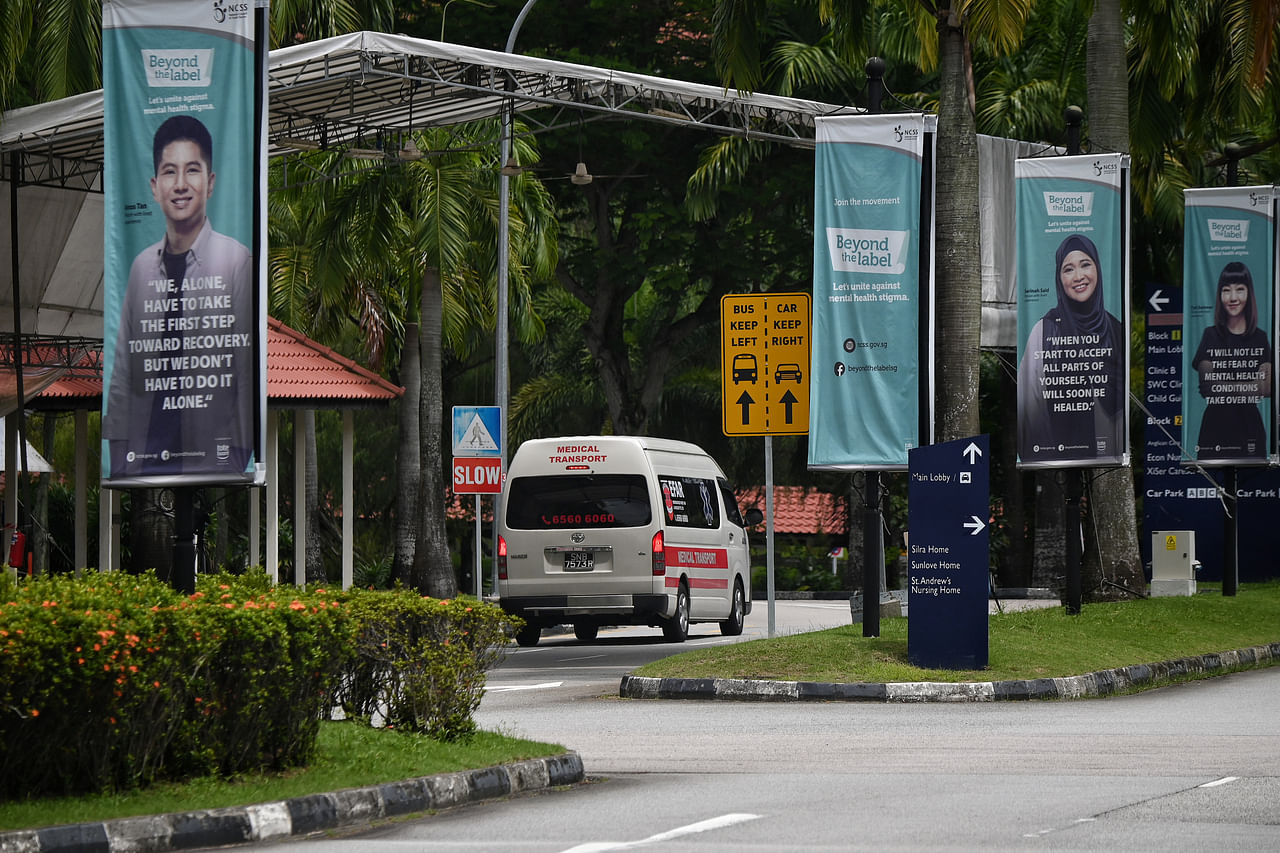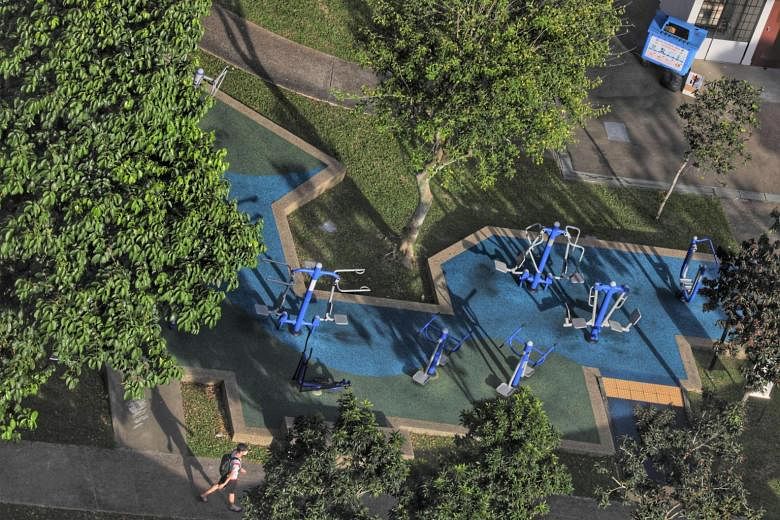SINGAPORE - The climate crisis is often treated as an environmental problem, but the planetary heating could also have severe repercussions on human health.
Last month, the World Health Organisation (WHO), in its Special Report on Climate Change and Health, warned that the world must limit warming to 1.5 deg C above pre-industrial levels to avert catastrophic health impacts and prevent millions of climate change-related deaths.
From zoonotic diseases to devastating wildfires and heatwaves, human health is already being harmed by temperature increases and the destruction of the natural world.
Climate action aligned with the Paris Agreement - which aims to limit global warming to under 2 deg C, preferably 1.5 deg C, above pre-industrial levels - would directly save millions of lives and improve many more.
While climate change and health have traditionally been seen as two separate issues, drawing connections between the two is crucial.
When temperatures rise above the 1.5 deg C threshold recommended by climate scientists, the risks to health increase.
According to the Lancet Countdown on health and climate change - an international collaboration dedicated to monitoring the evolving health profile of climate change - the changing environmental conditions are also increasing the suitability for the transmission of many water-borne, air-borne, food-borne and vector-borne pathogens in many places.
Climate change can threaten years of progress taken on public health and sustainable development.
Singapore is not immune to the health threats of climate change.
For example, Singapore was blanketed in haze arising from forest fires in the region in June 2013, causing air quality here to hit hazardous levels. In that period, there was a 30 per cent increase in patients with asthma admitted to hospitals.
The link between air pollution and health was further illustrated in a 2016 study by Harvard and Columbia universities, which showed that the South-east Asian haze might have caused approximately 100,000 premature deaths - with 2,000 reported in Singapore.
Climate change has also been associated with an increase in incidence and severity of allergies, including asthma and allergic rhinitis, and could impact mental health as well.
As the world braces itself for the impacts of climate change, "eco-anxious" individuals are gripped by anxiety. In a global survey of 10,000 young people by University of Bath - a research university in Britain - close to 60 per cent said they have felt worried about climate change, and 45 per cent reported that this worry negatively affected their daily lives.
The harmful impacts of environmental crises - such as extreme weather events - fall disproportionately on countries and communities that have contributed least to the problem, noted the editors of over 200 medical journals including The British Medical Journal and New England Journal of Medicine.
In September this year, they simultaneously published editorials calling for emergency action to tackle climate change.
"Equity must be at the centre of the global response," the editors noted, stating that countries have to account for their cumulative historical contributions and contribute their fair share to the global effort, with wealthier countries cutting emissions more quickly.
At a societal level, equity should also be at the heart of climate action to ensure that protection against impacts of climate change is also considered for all, especially the most vulnerable.
For example, individuals who work outdoors, communities without access to resources like air-conditioners, elderly folk with relatively weaker physical functioning or individuals with chronic illnesses are also more vulnerable to climate stressors like heat stress.
In a 2020 report on heat vulnerability, a local research consortium called Cooling Singapore found that physical exposure to heat varies significantly over different parts of Singapore and over the course of the day.
Those living in areas with less green spaces could feel the heat more keenly than in other parts of the island, as do households with less funds for air-conditioners and workers who spend long hours outdoors.
The healthcare sector also contributes to climate change, said Ms Pats Oliva, a communications campaigner from the South-east Asia office of Health Care without Harm - an international non-profit group that works to reduce healthcare's environmental footprint - in an interview with Third Spacing podcast.
She explained that healthcare is dependent on fossil fuel consumption, and 71 per cent of carbon emissions is from the healthcare supply chain such as production, transport, and disposal of goods and services.
A recently released Global Roadmap for Healthcare Decarbonisation produced by the non-profit group together with Arup, an independent design firm, showed that Singapore is one of the top emitters alongside Australia, Canada, Switzerland and the United States.
Immediate and aggressive action must be implemented to cut emissions, the report found, if the global healthcare sector was to avoid having its emissions triple by 2050.
Ms Oliva said there are many ways to do this, including eliminating non-essential plastics, implementing sterilisation techniques instead of disposables, transitioning to a clean renewable energy source, and increasing natural ventilation through windows.
The report found that in Singapore, about 9 per cent of the healthcare climate footprint comes from emissions from facilities like hospitals and healthcare-owned vehicles, while 91 per cent of emissions arises from energy used in cooling and heating and the healthcare supply chain.
As for actions that Singapore's healthcare sector can take, the report recommended investments in net-zero emissions buildings and infrastructure, and powering healthcare facilities with electricity generated by renewable sources, such as solar panels.
In the climate crisis, healthcare workers will be at the front line just like they have been during the Covid-19 pandemic.
Beyond administering care, health professionals have a trusted position in society, Ms Oliva said. "We need to bank on that advantage in order to really realise a fully engaged healthcare sector in the climate action fight," she added.
Research on the intersection of health and climate change can help us focus our efforts.

Dr Warwick Anderson, a professor of history of medicine at the University of Sydney, said discussions on the effects of climate change on human health pose an "ethical demand" on people to take climate action. He said in a podcast: "It has a direct impact on the health of our patients, our neighbours and our communities. That makes the climate change message more personal and urgent."
Ms Victoria Haldane, co-president and co-founder of Emerging Leaders for Environmental Sustainability in Healthcare, said: "We need healthy people on a healthy planet. And we need to promote the health of the planet while we are providing high-quality, safe and effective healthcare, because you can't have one without the other."
While the world is making strides on climate targets, current targets are not nearly enough to limit temperature rise to 1.5 deg C.
The global response to Covid-19 has shown that world leaders have the capacity to re-think the status quo, act urgently, and impose necessary yet costly measures to safeguard public health.
It's time that we react to the planetary emergency in the same way.
With all eyes on decision-makers at the ongoing COP26 climate conference in Glasgow, we can only hope that more urgent action is spurred. Every degree averted is a health disaster avoided.
- Ms Ching Ann Hui is a final-year medical student at the National University of Singapore, and host of healthcare podcast Third Spacing (@thirdspacing).
- Ms Woo Qiyun is an environmental communicator, who founded The Weird and Wild on Instagram (@theweirdandwild) which she uses as a platform to communicate environmental issues through creative visuals and graphics.

